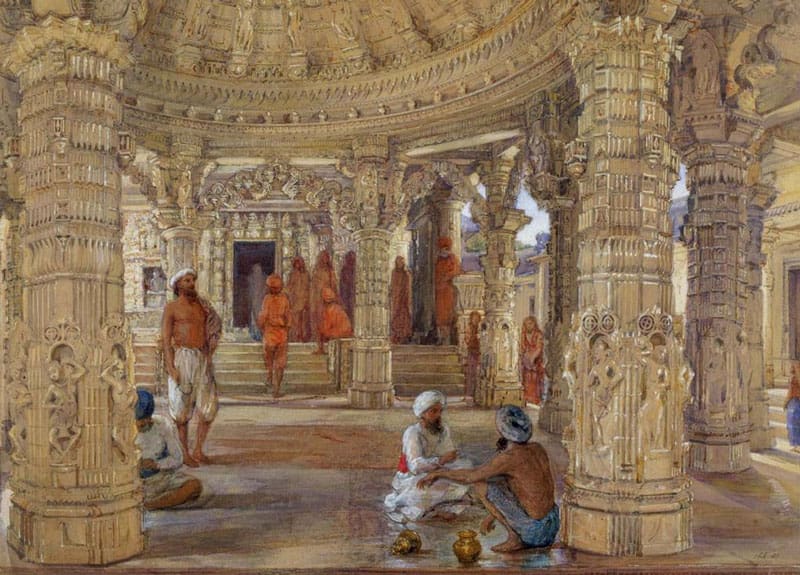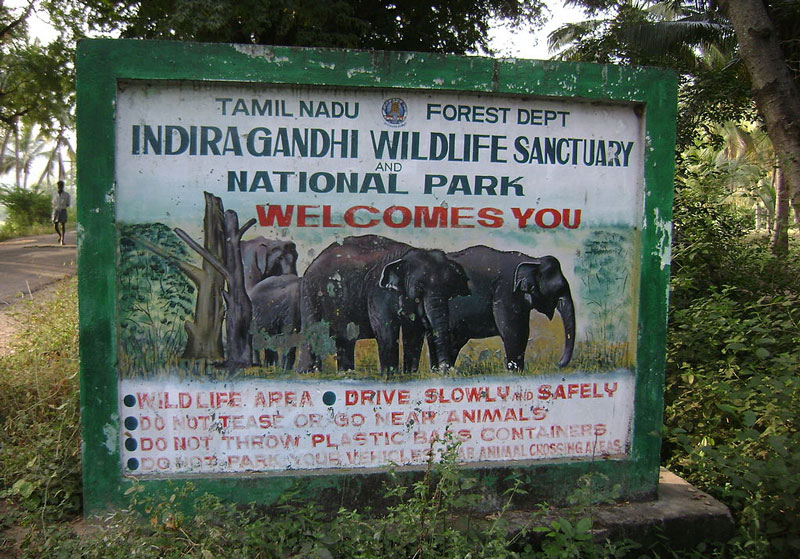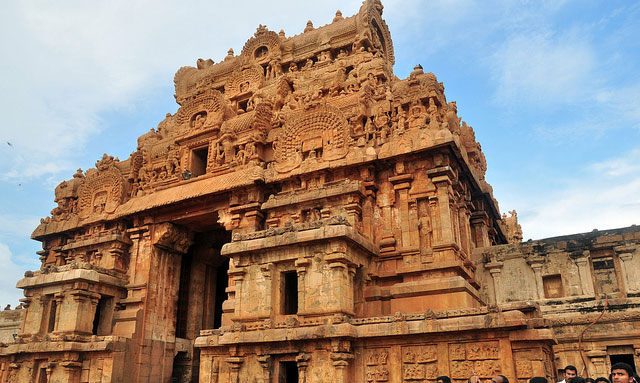Nestled amidst the lush greenery of Mount Abu, the Dilwara Jain Temples stand as a testament to exquisite craftsmanship and spiritual devotion. These temples, renowned for their intricate marble carvings and architectural grandeur, attract pilgrims and tourists from all corners of the world.
History and Significance
Ancient Origins
The Dilwara Jain Temples date back to the 11th and 13th centuries, built by the Chalukya dynasty rulers. These temples hold immense historical and religious significance, dedicated to various Jain Tirthankaras. The intricate carvings and architectural marvels of these temples reflect the rich cultural heritage of India.
Architectural Marvels
The Dilwara temples are celebrated for their unparalleled architecture, characterized by intricate marble carvings, detailed sculptures, and ornate ceilings. The craftsmanship displayed in these temples is considered among the finest examples of Jain architecture in India. The temples’ interiors are adorned with intricate designs, depicting scenes from Jain mythology and showcasing the mastery of the artisans who crafted them.
Places to Visit Around Dilwara Jain Temples
Nakki Lake
Located in the heart of Mount Abu, Nakki Lake offers a serene setting for leisurely boat rides and picnics. Surrounded by hills and lush greenery, the lake provides a picturesque backdrop for relaxation and rejuvenation. Visitors can also explore the nearby Nakki Lake Market, offering a variety of handicrafts, souvenirs, and local delicacies.
Guru Shikhar
As the highest point in the Aravalli Range, Guru Shikhar offers panoramic views of Mount Abu and its surrounding landscape. Visitors can trek to the summit or take a scenic drive to admire the breathtaking vistas from the top. The area is also home to the Guru Dattatreya Temple, dedicated to Lord Dattatreya, and is a popular pilgrimage site for devotees.
Achalgarh Fort
Built in the 14th century by Maharana Kumbha, Achalgarh Fort is steeped in history and legend. The fort houses several ancient temples, including the Achaleshwar Mahadev Temple and Kantinath Temple, making it a significant pilgrimage site for devotees. The fort’s strategic location offers stunning views of the surrounding landscape, making it a popular attraction for history enthusiasts and nature lovers alike.
Things to Do
Guided Tours
Visitors can opt for guided tours of the Dilwara Jain Temples to gain insight into their architectural and historical significance. Knowledgeable guides provide valuable information about the intricacies of Jainism and the craftsmanship showcased in the temples. These tours offer a deeper understanding of the cultural and religious heritage of the region.
Meditation and Spiritual Practices
The tranquil ambiance of the Dilwara temples makes them an ideal spot for meditation and spiritual reflection. Many visitors seek solace and inner peace amidst the serene surroundings of these sacred shrines. The peaceful atmosphere and spiritual vibrations of the temples create a conducive environment for introspection and meditation.
Photography
Photography enthusiasts will find plenty of opportunities to capture the beauty of the Dilwara temples and their surroundings. From intricate marble carvings to scenic vistas, every corner of these temples offers a captivating subject for photography. The play of light and shadow, coupled with the intricate details of the architecture, provides endless possibilities for creative expression through photography.
Climatic Conditions
Seasons and Weather Patterns
Mount Abu experiences a pleasant climate throughout the year, with summers being mild and winters cool. The monsoon season brings refreshing showers, enhancing the natural beauty of the region. The temperate climate makes Mount Abu an ideal destination for year-round travel, with each season offering its own unique charm and attractions.
Best Time to Visit
The best time to visit Dilwara Jain Temples is during the months of February to June and September to December when the weather is pleasant, and outdoor activities can be enjoyed to the fullest. The cool weather during these months makes it ideal for exploring the temples and engaging in various recreational activities.
How to Reach Dilwara Jain Temples
By Air
The nearest airport to Mount Abu is Maharana Pratap Airport in Udaipur, located approximately 185 kilometers away. From the airport, visitors can hire taxis or take buses to reach Mount Abu. The scenic drive from Udaipur to Mount Abu offers breathtaking views of the Aravalli Range, making it a memorable journey for travelers.
By Train
Abu Road Railway Station is the nearest railhead to Mount Abu, situated at a distance of about 28 kilometers. Regular trains connect Abu Road with major cities like Delhi, Mumbai, and Ahmedabad. From Abu Road, visitors can hire taxis or take buses to reach Mount Abu, enjoying the picturesque landscape along the way.
By Road
Mount Abu is well-connected by road to various cities in Rajasthan and neighboring states. State-run buses, as well as private taxis, ply regularly between Mount Abu and nearby towns and cities. The well-maintained highways and scenic routes make road travel to Mount Abu a popular choice for many travelers.
Accommodation Options
Hotels and Resorts
Mount Abu offers a wide range of accommodation options to suit every budget and preference. From luxury resorts to budget guesthouses, travelers can find comfortable lodging options in close proximity to the Dilwara Jain Temples. Many hotels and resorts offer modern amenities and facilities to ensure a pleasant stay for guests.
Guesthouses and Homestays
For a more immersive experience, visitors can opt to stay in guesthouses or homestays run by local families. These accommodations offer a glimpse into the local culture and hospitality of Mount Abu, allowing guests to experience the warmth and authenticity of Rajasthani hospitality. Staying in a guesthouse or homestay provides an opportunity to interact with locals and learn about their way of life.
Local Cuisine and Food
Jain Cuisine
Given the significance of Jainism in Mount Abu, vegetarian cuisine is prevalent throughout the region. Visitors can savor delicious Jain delicacies prepared with fresh ingredients and aromatic spices. Some popular Jain dishes include dal bati churma, khandvi, dhokla, and papad ki sabzi, which are enjoyed by locals and tourists alike.
Rajasthani Delicacies
In addition to Jain cuisine, Mount Abu also offers a variety of Rajasthani delicacies, reflecting the rich culinary heritage of the region. Visitors can indulge in mouthwatering dishes such as laal maas, gatte ki sabzi, ker sangri, and bajre ki roti, which are known for their bold flavors and traditional preparation methods. The vibrant colors and aromatic spices of Rajasthani cuisine tantalize the taste buds and leave a lasting impression on visitors.
Shopping Destinations
Local Handicrafts
Mount Abu is famous for its vibrant handicrafts, including handwoven textiles, pottery, and jewelry. Visitors can explore local markets and shops to purchase unique souvenirs and handicraft items, supporting local artisans and craftsmen. Some popular shopping destinations in Mount Abu include Nakki Lake Market, Government Handicrafts Emporium, and Khadi Bhandar, where visitors can find a wide range of traditional Rajasthani handicrafts and artifacts.
Souvenirs
From miniature marble sculptures to colorful Rajasthani artifacts, Mount Abu offers a plethora of souvenirs for travelers to take home as mementos of their visit. Bargaining is common in local markets, so visitors should be prepared to negotiate prices and shop wisely. Some popular souvenirs include Rajasthani puppets, camel leather goods, embroidered textiles, and silver jewelry, which make perfect gifts for friends and family back home.
Accessibility and Facilities
Wheelchair Accessibility
The Dilwara Jain Temples are wheelchair accessible, ensuring that visitors with mobility impairments can explore the temples comfortably. Ramps and designated pathways facilitate easy movement within the temple complex, allowing everyone to experience the beauty and tranquility of these sacred shrines.
Restrooms and Amenities
Restrooms and other amenities are available near the Dilwara Jain Temples for the convenience of visitors. Clean and well-maintained facilities ensure a comfortable experience for pilgrims and tourists alike, allowing them to relax and refresh themselves during their visit. Visitors can also find drinking water facilities and seating areas near the temples, providing a respite from the heat and crowds.
Nearby Hotels and Restaurants
Recommendations and Reviews
Some popular hotels and restaurants near the Dilwara Jain Temples include Hotel Hillock, Hotel Aravali, and Arbuda Restaurant. These establishments offer a range of dining options and comfortable accommodations for travelers, ensuring a memorable stay in Mount Abu. Visitors can enjoy delicious Rajasthani cuisine, continental dishes, and international flavors at these restaurants, catering to diverse tastes and preferences.
Tourist Map and Navigation
Key Points of Interest
A tourist map of Mount Abu highlights key points of interest, including the Dilwara Jain Temples, Nakki Lake, and Achalgarh Fort. Visitors can use the map to navigate the city and plan their itinerary accordingly, ensuring that they don’t miss out on any of the must-see attractions. The map also provides information about nearby hotels, restaurants, and other facilities, making it a valuable resource for travelers exploring Mount Abu.
Directions
Signage and directional markers guide visitors to the Dilwara Jain Temples and other attractions in Mount Abu, ensuring a smooth and hassle-free experience. GPS navigation apps can also be helpful for travelers exploring the city on their own, providing turn-by-turn directions and real-time updates on traffic conditions. Whether traveling by car, bike, or on foot, visitors can easily navigate Mount Abu and discover its hidden gems with the help of modern technology.
Distance From Major Cities
Distance Chart
The distance from major cities to Mount Abu varies, with Jaipur being approximately 520 kilometers away, Ahmedabad around 230 kilometers, and Udaipur roughly 160 kilometers. Travel time may vary depending on the mode of transportation and road conditions, with trains and buses offering convenient options for reaching Mount Abu from nearby cities. Whether traveling from Delhi, Mumbai, or Ahmedabad, visitors can enjoy a scenic journey through the picturesque landscapes of Rajasthan en route to Mount Abu.
Nearby Attractions
Temples and Historical Sites
In addition to the Dilwara Jain Temples, Mount Abu is home to several other temples and historical sites worth exploring. The Adhar Devi Temple, Raghunath Temple, and Mount Abu Wildlife Sanctuary are among the popular attractions in the region, offering a glimpse into the rich cultural and natural heritage of Rajasthan. Visitors can immerse themselves in the spiritual ambiance of these temples and witness the architectural splendor of ancient monuments, making it a memorable experience for history buffs and nature lovers alike.
Natural Wonders
The natural beauty of Mount Abu is unparalleled, with scenic viewpoints, lush forests, and cascading waterfalls dotting the landscape. Visitors can embark on nature trails, birdwatching excursions, and wildlife safaris to explore the pristine wilderness of the region, discovering hidden gems and breathtaking vistas along the way. Whether trekking through the Aravalli Range or boating on Nakki Lake, travelers can reconnect with nature and experience the tranquility of Mount Abu’s natural wonders.
Travel Tips
Dress Code and Etiquette
Visitors to the Dilwara Jain Temples are required to dress modestly and remove their footwear before entering the temple premises, as a mark of respect for the religious customs and traditions of Jainism. Both men and women should dress conservatively, covering their shoulders and knees, and refrain from wearing revealing clothing or accessories. It is also customary to maintain silence and avoid disturbing others while inside the temple, allowing devotees to pray and meditate in peace.
Hydration and Sun Protection
Given the arid climate of Rajasthan, it is important to stay hydrated and protect oneself from the harsh sun rays while exploring Mount Abu. Carrying a water bottle, wearing sunscreen, and wearing a hat or sunglasses are recommended to prevent dehydration and sunburn. It is advisable to avoid direct exposure to the sun during peak hours and seek shade whenever possible, especially during the summer months when temperatures can soar.
Language and Communication
English and Hindi are widely spoken and understood in Mount Abu, making communication with locals relatively easy for travelers. Learning a few basic phrases in Hindi, such as greetings and common expressions, can enhance the travel experience and facilitate interactions with the local community. Most people in Mount Abu are friendly and welcoming towards tourists, and appreciate efforts to communicate in their native language.
Safety Precautions
While Mount Abu is generally safe for tourists, it is advisable to exercise caution and be vigilant, especially when exploring remote areas or traveling alone. Keeping valuables secure and avoiding deserted areas at night can help ensure a safe and enjoyable trip. Travelers should also be aware of their surroundings and follow local customs and traditions to avoid any misunderstandings or conflicts. By staying informed and taking necessary precautions, visitors can enjoy a memorable and hassle-free experience in Mount Abu.
Cultural Sensitivity
Respecting the cultural diversity and religious sentiments of the local population is paramount when visiting Mount Abu. Visitors should refrain from engaging in behavior that may be considered disrespectful or offensive to the local community, such as littering, public intoxication, or inappropriate dress. It is important to be mindful of local customs and traditions, and seek permission before photographing people or religious sites. By showing respect and appreciation for the cultural heritage of Mount Abu, travelers can forge meaningful connections and create lasting memories during their visit.
Conclusion
The Dilwara Jain Temples in Mount Abu offer a captivating blend of architectural splendor, spiritual serenity, and natural beauty. Whether you’re a history enthusiast, a spiritual seeker, or a nature lover, Mount Abu has something to offer for everyone. Plan your trip to this enchanting destination and immerse yourself in its rich cultural heritage and picturesque landscapes.
FAQs
- Are photography and videography allowed inside the Dilwara Jain Temples?
- Yes, photography is allowed inside the Dilwara Jain Temples, but videography may be restricted or subject to specific guidelines. Visitors are advised to check with temple authorities for any specific rules or restrictions regarding photography and videography.
- What are the timings for visiting the Dilwara Jain Temples?
- The Dilwara Jain Temples are open for visitors from early morning to late afternoon. The exact timings may vary depending on the season and specific temple regulations. Generally, the temples are open from around 6:00 AM to 6:00 PM.
- Is there an entry fee for visiting the temples?
- Yes, there is a nominal entry fee for visiting the Dilwara Jain Temples. The fee may vary for Indian and foreign tourists, with discounted rates for children and senior citizens. Visitors can purchase tickets at the temple entrance or designated ticket counters.
- Can visitors participate in any religious rituals or ceremonies at the temples?
- While visitors are welcome to observe religious rituals and ceremonies conducted at the Dilwara Jain Temples, active participation may be limited to Jain devotees or individuals with prior arrangements. Visitors can witness daily prayers, offerings, and rituals performed by temple priests and devotees, enhancing their spiritual experience.
- Are there any restrictions on the consumption of food and beverages inside the temple premises?
- Yes, there are usually restrictions on consuming food and beverages inside the temple premises as a mark of respect for the sacred environment. Visitors are advised to finish their meals or snacks before entering the temples and refrain from eating or drinking while inside. Water bottles may be allowed, but visitors should dispose of them responsibly to maintain cleanliness and sanctity.












